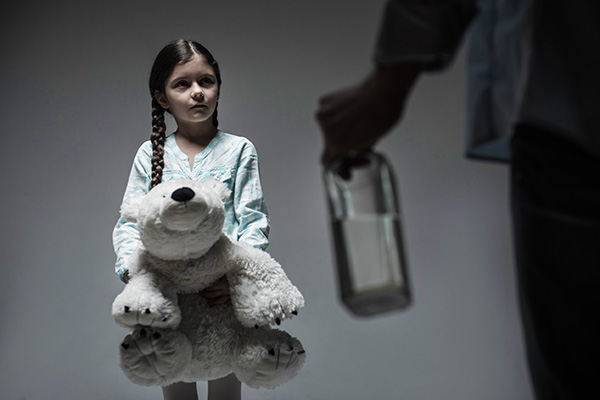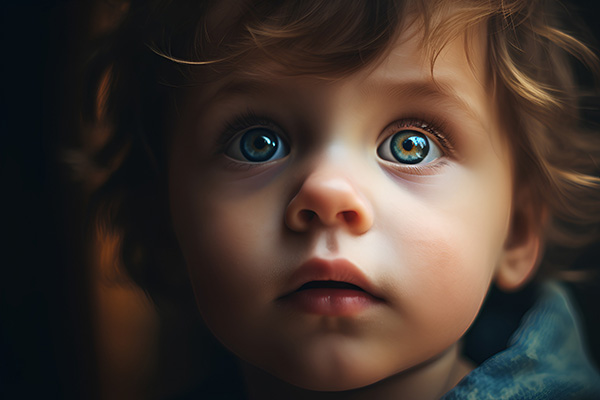children
The Life Lessons We Learn From Children
 We can learn so much from children if we really pay attention and make the effort to see things from their perspective. Children embody a purity and wisdom that most adults have lost touch with in the complexities of daily life.
We can learn so much from children if we really pay attention and make the effort to see things from their perspective. Children embody a purity and wisdom that most adults have lost touch with in the complexities of daily life.
Many women in my age group, known as the “baby boomers,” were so busy trying to have a career and a family. We believed we could do it all, but in the process we missed many of the little things our children had to teach us. I was guilty of that.
But now that I have grandchildren in my life and have had the opportunity to take the time to see things differently, I have learned many profound lessons and insights from them over the years.
In their early years, children are still deeply connected to their spiritual origins and carry with them a high level of soul awareness that has not yet been clouded by the demands of physical life and the challenges of human existence.
This active spiritual awareness allows them to move through the world with an openness and purity that adults often struggle to maintain. Unencumbered by societal expectations, ego-driven desires, or fear of judgment, they are able to express love, joy, and creativity in their most authentic form.
Because they haven’t yet been conditioned by the limitations and constraints of the material world, children serve as powerful teachers, offering us glimpses of the spiritual truths that are easily forgotten in the hustle and bustle of adult life. They remind us of the infinite potential of our own souls and inspire us to reconnect with the deeper, more meaningful aspects of our being.
Thanks, Mom, For Teaching Me Love And Kindness
 We all know people who have come in and out of our lives saying or doing just the right thing, at just the right time. People come into our lives for a reason, a season, or a lifetime. Some of these wonderful messengers and wayshowers may stay in our lives, or leave just as quickly as they came.
We all know people who have come in and out of our lives saying or doing just the right thing, at just the right time. People come into our lives for a reason, a season, or a lifetime. Some of these wonderful messengers and wayshowers may stay in our lives, or leave just as quickly as they came.
I have had several experiences with such earth angels. When I think of ‘earth angels,’ I think of one person in particular: my mother. She taught me many things that have helped me so much in my life. In particular she taught me the fruits of the spirit by applying them in her own life: love, joy, peace, patience, kindness, goodness, faithfulness, gentleness, and self-control.
Children don’t do what adults say…they do what we do. Parents who are great role models and truly involved in their children’s lives raise kind adults, who in turn gift the same values to their own children. I was very fortunate to have a mother who didn’t leave me to fend for myself when I was growing up. She was very active in my life and taught me to be kind and courteous to everyone; to respect the elderly; and to always smile and be positive because we attract what we put out in the world.
My mother also made sure that we ate all our meals at the table until we left home as young adults. My husband pointed out once that when my mother calls us, she always asks how everyone is, not just me. She is very supportive and interested in how everyone is doing. I know a lot of people like her who would walk right up to you and give you a hug and ask you how you are.
Spiritual Empowerment For The Single Parent
 Being a spiritually conscious single parent today is a challenge, but it also offers unique opportunities for spiritual growth and personal development.
Being a spiritually conscious single parent today is a challenge, but it also offers unique opportunities for spiritual growth and personal development.
Navigating this responsibility effectively requires more than practical parenting skills and strategies. It also requires intuitive awareness and spiritual guidance.
These two inner resources can help single parents make wise choices that align with their core values and provide inner strength and courage during difficult times.
As a parent, I deeply value intuitive awareness and spiritual guidance in my daily life. These inner resources are my compass, helping me navigate the complexities of parenting with grace and confidence.
Intuitive awareness allows me to sense my children’s needs and emotions on a deeper level, often guiding me to the right words or actions in moments of uncertainty.
Spiritual guidance, on the other hand, provides me with a sense of purpose and calm, grounding me in the knowledge and faith that I am part of a greater plan.
Together, they help me make decisions that are not only practical but also aligned with my core values and higher purpose. This dual approach ensures that I am nurturing my children’s growth while staying true to myself, fostering a harmonious and supportive family environment.
Substance Abuse Destroys Relationships And Families
 We all put a lot of time, effort, and resources into our relationships. From dating to marriage and parenthood, each stage comes with its own mix of joys and challenges. But amidst these milestones, it’s natural to ask: Is our relationship nurturing our spiritual well-being?
We all put a lot of time, effort, and resources into our relationships. From dating to marriage and parenthood, each stage comes with its own mix of joys and challenges. But amidst these milestones, it’s natural to ask: Is our relationship nurturing our spiritual well-being?
Think about the impact your partner has on your mental health and spiritual well-being. Is your relationship deepening your connection with God, Source, Spirit, or the Divine? Is it nurturing and protecting your children and loved ones? Or do you feel a subtle drift away from what really matters?
It’s a common scenario — an intimate relationship starts to fade as priorities shift. Maybe your partner chooses time with friends over quality family moments. Perhaps hobbies or habits take over, eroding intimacy and trust.
This isn’t just a personal story; it’s a broader reality with serious consequences. Children left wondering where a missing parent is, while the other struggles alone as a single parent, trying to juggle too much. This absence of care and nurture affects children’s personal and spiritual growth, leaving lasting echoes into their adulthood.
Alcohol and drug abuse often sneak into many of these situations, silently corroding relationships and families from within. In my spiritual work, I’ve met many souls grappling with failing marriages and domestic chaos overshadowed by substance abuse and addiction.
If you’re stuck in such a relationship, ask yourself why you’re staying. Love shouldn’t coexist with self-destruction. If your partner’s commitment wavers, consider where your spiritual path meets theirs. Sometimes, the toughest choices lead to healing.
The Old Souls Of The New Children
 Since the 1960s, the “New Children” have been arriving on the Earth plane in increasing numbers, bringing with them wisdom, insights, perspectives and innovations that are sorely needed in our rapidly evolving, and currently very troubled world.
Since the 1960s, the “New Children” have been arriving on the Earth plane in increasing numbers, bringing with them wisdom, insights, perspectives and innovations that are sorely needed in our rapidly evolving, and currently very troubled world.
The New Children are old souls reincarnated to return to the earthly realm on a special mission — to guide, heal, teach and enlighten; to awaken humanity to a higher level of consciousness.
As more and more of these ancient souls grace our planet with their presence, it is becoming increasingly apparent that they possess a profound understanding of the interconnectedness of all life and the inherent unity that binds us together.
Through their innate wisdom and pure-heartedness, the New Children are converging to transform the collective consciousness of humanity. They are introducing us to a future society where prejudice, discrimination and injustice are relics of the past, replaced by a deep reverence for the inherent dignity and worth of every soul.
The wisdom that this new generation of humans carry is not bound by the limitations of social constructs and dogmatic religion. They challenge us to look beyond the superficial labels of body, gender, race, creed, and nationality, reminding us that these are merely temporary identities that obscure the true essence of who we are. They have a deep understanding that we are all equal and deserving of love, regardless of outward differences.
Why Some Souls Depart This Life Early
 In over 15 years of doing spiritual readings, I’ve had to deal with some very difficult questions from clients who have suffered extreme loss or trauma.
In over 15 years of doing spiritual readings, I’ve had to deal with some very difficult questions from clients who have suffered extreme loss or trauma.
One of the most heartbreaking, however, is making sense of the death of an infant, child, or young adult, sometimes after a cruel and very unpredictable death.
Grieving the death of a young person can bring up some of the most profound and challenging emotions. While it is never easy to address this kind of loss with grieving parents and relatives, Spirit has been consistent in its guidance over the years.
Although I have been spared the loss of someone so young in my own life, I am no stranger to it. I have supported many families in this regard over the years, both professionally and in my personal life.
The first time I realized how fragile life really is, was when I was only 12 years old. I was looking forward to the summer vacation from school. One of my classmates who lived down the street and her family had relatives visiting for the summer. Two of the visiting cousins were more or less our age, so I had a nice group of girl playmates for the season!
There was also the younger brother of the visiting cousins, who was only six years old. He was an adorable child with blond hair, bright blue eyes, and a freckled face full of mischief. He followed his two sisters, my girlfriend, and me wherever we went during those carefree days. I did not mind having him around and even encouraged the others to let him play hide-and-seek and many other childhood games with us.
